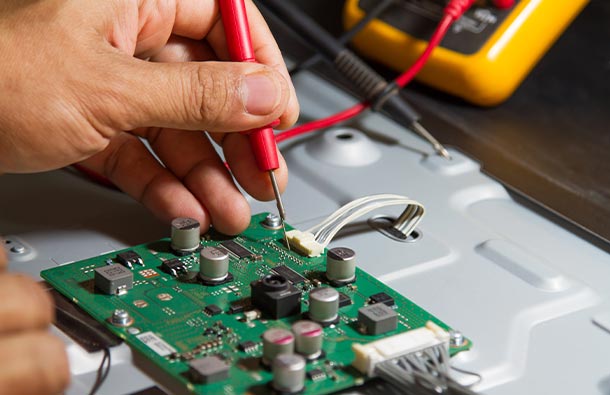Electronics Technology
D C Analysis
This course is a core requirement in all Electronics programs. The course covers the basic principles of direct current circuits containing passive elements, including transient circuit analysis. Circuit theory and conversions will also be examined. Troubleshooting of basic resistive circuits with both a theoretical and a hands-on approach will be applied. Experiments are performed in conjunction with all major topics. Basic electronic testing equipment will be used in conjunction with all lab experiments, including the Digital Multimeter and the Analog Multimeter. NOTE: Prerequisites: An understanding of basic algebra.
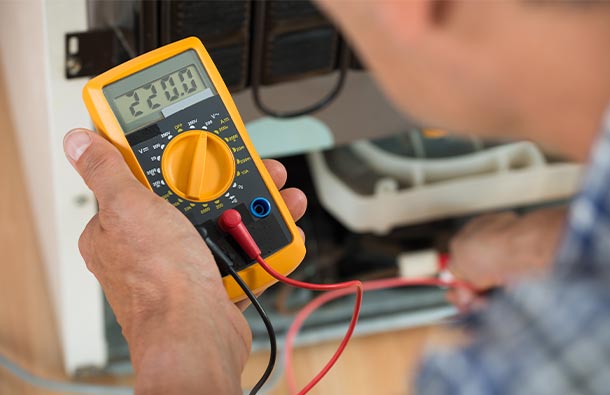
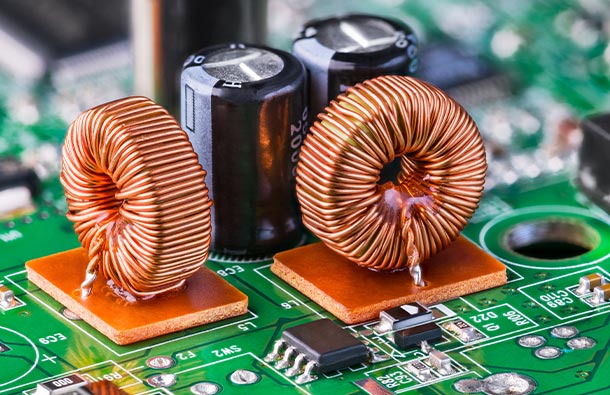
A C Analysis
This course extends the basic concepts introduced in DC Analysis to incorporate time-varying voltages and currents. AC (Alternating Current) circuit analysis introduces the basic behavior of capacitors and inductors, as well as series/parallel circuits. Students also learn to analyze Power (real, reactive, apparent) in various AC circuit configurations, including series/parallel resonance.
Electronics I
This course utilizes an integrated approach to learning. A topic will be introduced and discussed, developed into a practical circuit, analyzed for faults, and evaluated with a prelab using a commonly accepted software package. The circuits are built, tested and reported in the lab experiments. The course covers basic semiconductor theory, Diode theory, Zener diodes, special use diodes and LEDs. Bipolar transistors to include biasing, D.C. load lines, transistor operation and data sheets are discussed. Power supply circuits and transistor amplifiers are analyzed. Experiments are performed in conjunction with all major topics to reinforce theory.
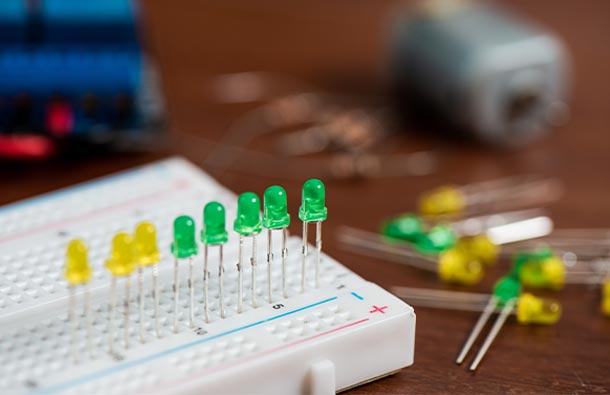
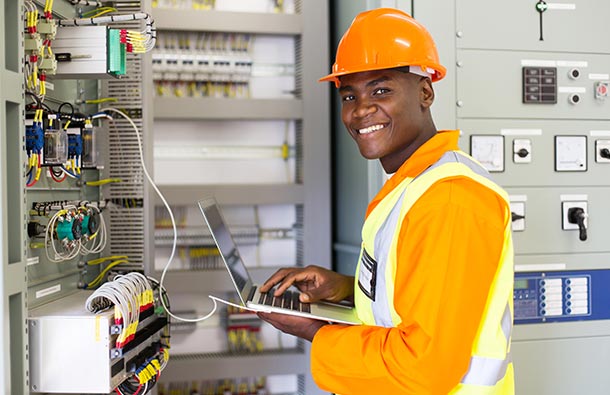
Electro and Mechanical Systems
This course examines the behavior of electrical and mechanical components used in interfacing the machine environment to the outside world. The course concentrates on the behavior of input and output devices used to detect, measure and control mechanical, thermal, fluid, optical and electrical processes.
Troubleshooting and Repair
This course is an applied course in Electronics, which aims to provide the student with clear and concise instruction on how to repair consumer electronic equipment. Students will discuss the operation of basic electronic systems such as amplifiers, power supplies, stereo receivers and CD players. Schematic diagrams and block diagrams will be studied for call type of device. The techniques utilized in this course are universally applicable in all types of electronic equipment regardless of their application. Theory and applications acquired in pre-requisite electronic courses will be applied to Troubleshooting and Repair.
